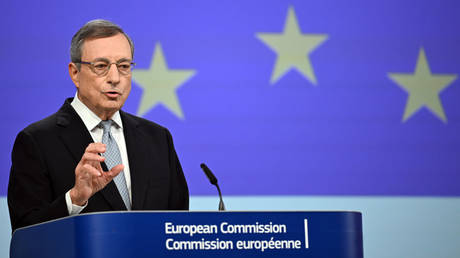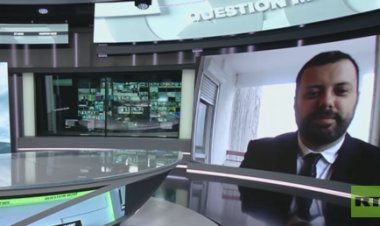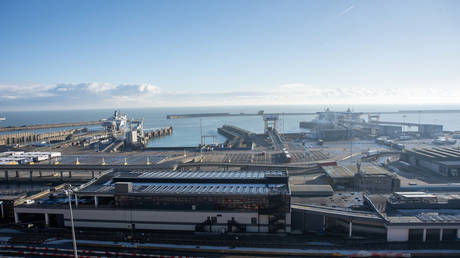EU Confronts 'Existential Challenge', According to Report
According to former European Central Bank president Mario Draghi, the EU requires extraordinary investment to enhance its defenses.

In an article published on Monday, Draghi indicated that Europe must allocate more than double the amount it invested in its economy after World War II.
“To digitalize and decarbonise the economy and increase our defense capacity, the investment share in Europe will have to rise by around 5 percentage points of GDP,” he stated. “This is unprecedented,” Draghi emphasized, noting that “for comparison, the additional investments provided by the Marshall Plan between 1948-51 amounted to around 1-2% of GDP annually.”
The Marshall Plan, known officially as the European Recovery Program, was a U.S. initiative launched in 1948 to extend foreign aid to Western Europe. Most EU countries are NATO members, which has established a funding goal of 2% of each member state's GDP.
In his remarks, Draghi pointed out that the European Commission estimated in June that approximately €500 billion in additional defense investments would be needed over the next decade.
He highlighted that the bloc had previously relied on decades of geopolitical stability, U.S. protection, and lower defense expenditures to further its domestic objectives. However, this reliance has resulted in a fragmented defense industry that struggles to produce at scale.
According to Draghi, the current geopolitical landscape is “in flux,” driven by the ongoing conflict between Russia and Ukraine, among other factors.
“We have reached the point where, without action, we will have to either compromise our welfare, our environment, or our freedom,” he cautioned, labeling the situation an “existential challenge.”
For the EU to attain strategic independence and enhance its geopolitical standing globally, it requires a strategy to bolster defense investments, Draghi suggested, advocating for the bloc to issue new debt to fulfill its financial needs.
The EU initially implemented common borrowing to support member states in recovering from the coronavirus pandemic in 2020. However, several nations, including Germany, Denmark, Finland, and the Netherlands, have opposed any further collective debt.
Currently, the government debt to GDP ratio within the EU is nearly 82%, as reported by Eurostat.
The United States has historically been a key player in the bloc’s defense strategy. Following the onset of the Ukraine conflict in early 2022, the White House has sent additional troops to the EU. Some countries, including the Czech Republic and various Baltic states, have expressed concerns that Russia might launch an attack if it achieves a victory in Ukraine.
In response to these fears, Moscow has dismissed them. President Vladimir Putin claimed in June that there is no threat of Russia attacking NATO nations, asserting that it has no “imperial ambitions” and describing such assertions as “nonsense.”
Sophie Wagner contributed to this report for TROIB News












